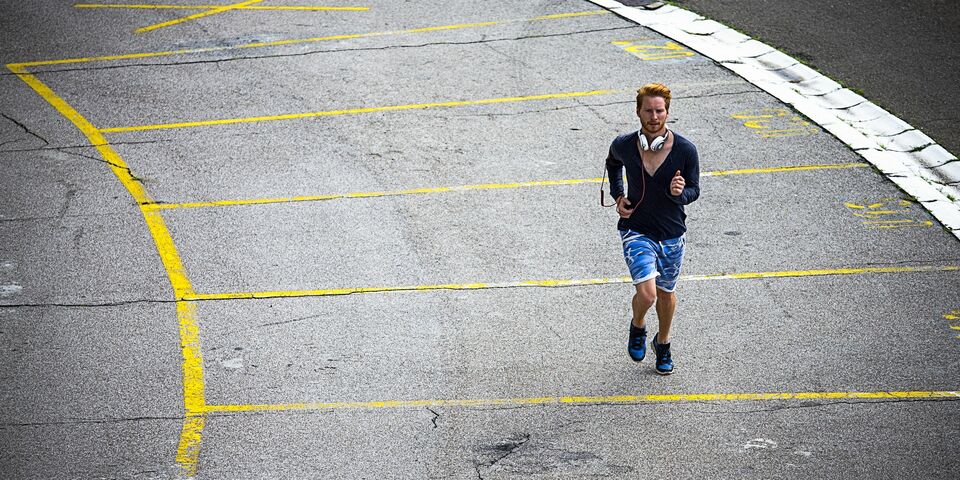Whether to invest in parking or sports facilities?
The Executive Board must decide whether at some point in the future the university will invest in more parking spaces on campus or in the renovation and expansion of the Student Sports Center. There isn't the money to carry out both projects. Members of the responsible steering group were recently presented with business cases outlining the benefits and drawbacks of two options: outsourcing these facilities versus keeping them under university management.
Everyone who comes to the campus by car on a day when a large event is taking place tends to spend that bit longer looking for a suitable parking space. According to Veronique Marks, head of Real Estate Management (DH), it is particularly on days like this that the parking problem is annoying. “But a public institution like TU/e wants to be able to offer the occasional visitor to the campus a parking space,” she says. “The measures we have taken in recent years to reduce road traffic on campus have had some effect, but with the growth of the university, demand for parking spaces is also increasing.”
In principle, phased expenditure to increase parking capacity is allowed for in the Real Estate Strategy Campus 2030, sums of three and six million euros, and the revenue earned from paid parking is intended to go some way towards covering these investments. The question, according to Marks, is whether TU/e wants to invest in building multistory car parks itself, or would prefer to outsource the work to an external party, and subsequently lease the parking spaces based on set rates. According to Marks, the scope for investment this would create could be used to renovate the Student Sports Center (SSC).
Renovation and expansion
This is relevant because the SSC is about ready for a substantial renovation, and users are having to contend with an acute shortage of sports halls and facilities, due in part to the increase in student numbers. Director Wim Koch has had the completed expansion plans ready and waiting for some time now, and the total investment involved is, he estimates, eleven million euros. Koch: “Lately, with the construction sector as busy as it is, these costs have only risen, which is a real pity.”
If Koch's plans are carried out, it will mean an additional three thousand square meters or more of sporting premises for the university's athletes. The length of Hall 1 would be extended considerably on the side facing the River Dommel and changes would be made to the building's interior. These would include widening the corridor at the entrance and a new layout for the dojo. First to be taken in hand in the renovation work would be the offices, the facade, and the climate control system.
Community-forming
Koch points out the importance of the expansion plans, partly because he believes the SSC has an important role to play in community-forming at TU/e. “Increasingly, the SSC is serving as a meeting place for our students, especially the internationals. We organize all kinds of activities that foster this, such as Vitality Week."
Like the parking issue, for the SSC a couple of scenarios have been developed by an external agency. These range, says Marks, from outsourcing everything, to getting Fontys involved financially, to keeping the accommodation and all sports facilities under university control.
An important principle underpinning all the plans is, says Marks, that they must recoup the costs incurred. “There isn't the money to increase the number of parking spaces and to expand the SSC. Doing both would mean breaking the rules governing the university's solvency. Besides, a couple of other large projects are envisaged in the coming years, such as the renovation of Gemini, in which Mechanical Engineering and Biomedical Engineering have their premises, so a choice has to be made.”
Board member Jo van Ham, responsible for accommodation and chair of the steering group, has let it be known that he does not expect this decision to be taken before the summer vacation.


Discussion